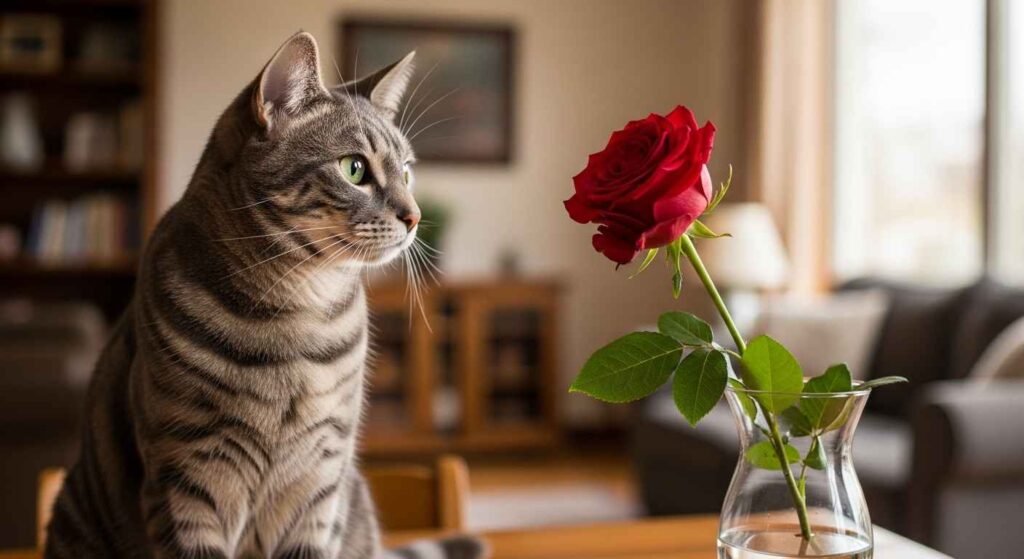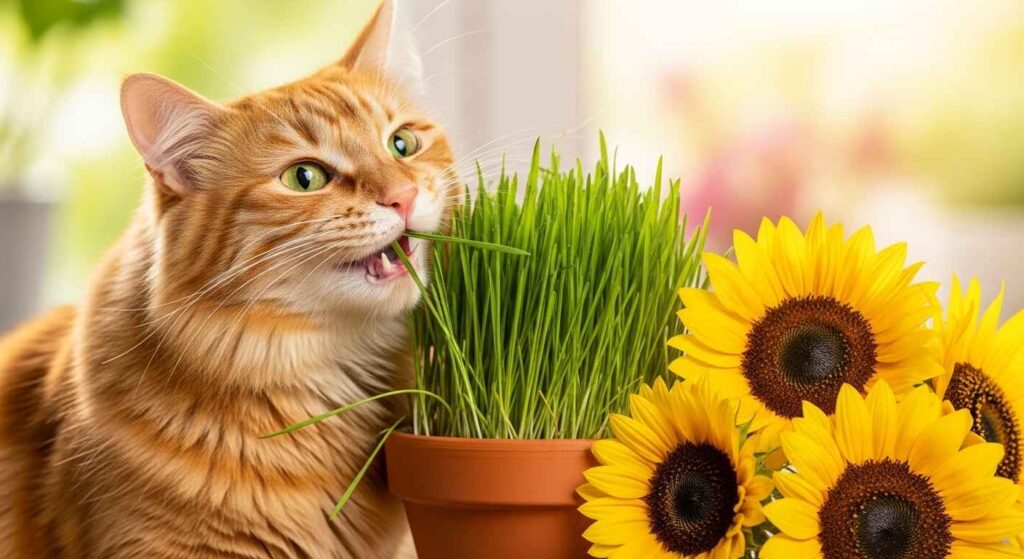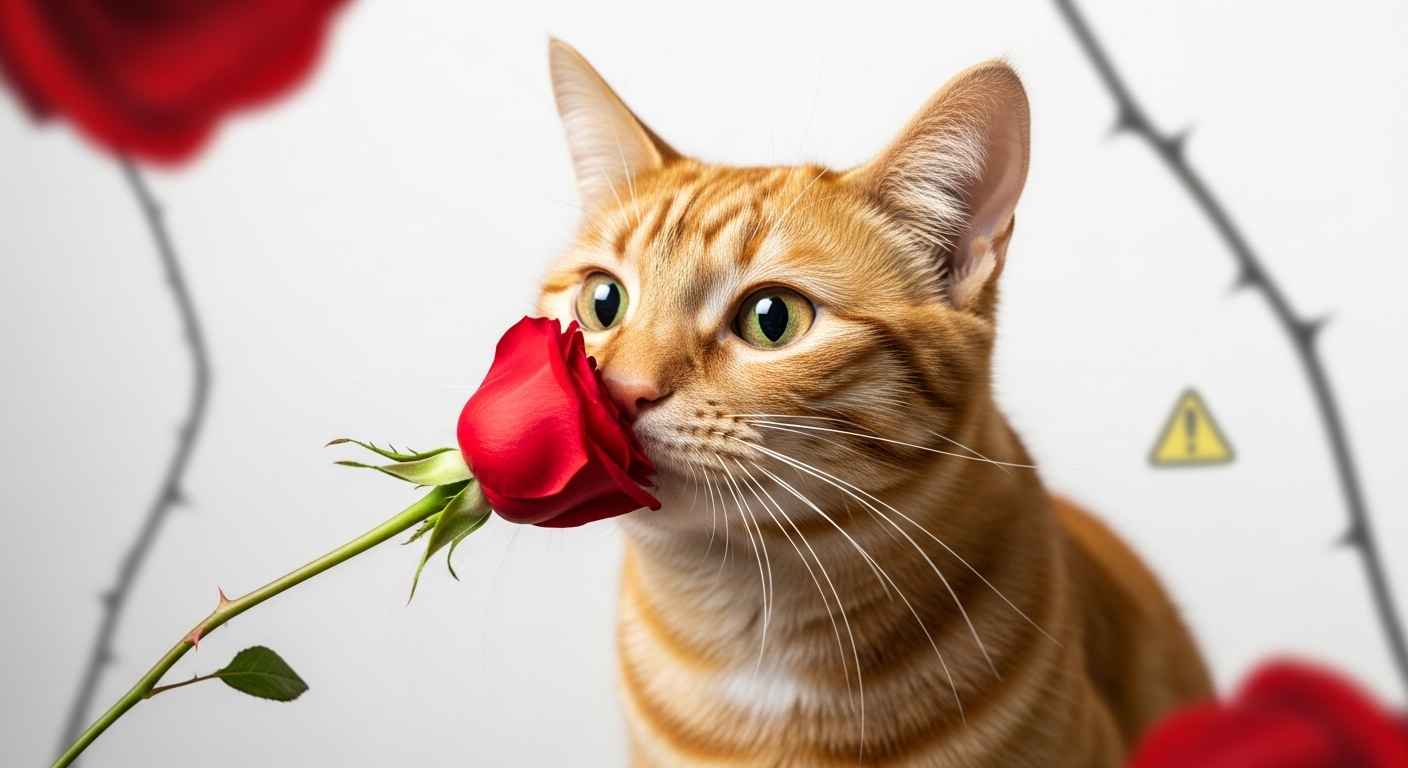Roses are popular flowers. Many cat owners worry about their safety. True roses are not toxic to cats. But they can still cause problems. This guide covers risks, symptoms, and tips to keep your cat safe. All facts come from trusted sources like the ASPCA and vets. Data is current as of 2025.

Are True Roses Safe for Cats?
True roses belong to the Rosa family. The ASPCA lists them as non-toxic to cats. Petals, leaves, and stems do not contain poisons. Cats can touch or sniff them without harm from chemicals in the plant.
Rose Petals and Leaves
Petals and leaves are safe if eaten in small amounts. But cats are meat eaters. Plant material can upset their stomach. This leads to mild vomiting or loose stools. Most cases resolve on their own.
Rose Stems and Thorns
Stems are non-toxic. Thorns are the real issue. They can scratch a cat’s skin, eyes, or paws. If swallowed, thorns may damage the mouth or gut. This causes pain, swelling, or infection. Watch cats that play with rose stems.
For more on cat injuries, check our pet symptom checker.
Hidden Dangers in Roses
Roses seem safe. But other factors add risk. These come from how roses are grown or treated.
Pesticides and Chemicals
Many roses have pesticides or fertilizers. These are toxic to cats. Signs include drooling, shaking, or weakness. Wash roses before bringing them home. Buy organic if possible. If your cat shows odd signs, use our pet food safety checker to rule out toxins.
Flower Food and Dyes
Cut roses often come with food packets. These contain harmful substances. Dyes on colored roses can irritate the gut. Keep vases out of reach. Use plain water for flowers.

Plants Called “Roses” That Harm Cats
Not all “roses” are true roses. Some are from other families. These can poison cats.
- Christmas Rose: Causes vomiting and slow heart rate.
- Desert Rose: Leads to heart issues and weakness.
- Moss Rose: Results in kidney problems.
- Primrose: Irritates skin and mouth.
- Rosebay (Rhododendron): Affects the heart and nerves.
- Rose of Sharon: Safe, like true roses.
Check plant labels. Avoid these if you have cats. For similar topics, see our post on are carnations toxic to cats.
What Happens If Your Cat Eats a Rose?
Cats chew plants out of boredom or curiosity. If yours eats a rose, stay calm. Look for these signs:
- Mild upset: Vomiting, diarrhea, or no appetite.
- Thorn injury: Drooling, pawing at mouth, or blood.
- Chemical poisoning: Shaking, fast breathing, or collapse.
Most mild cases pass in a day. But call your vet if signs last. Or if thorns or chemicals are involved. Contact the ASPCA Poison Control at (888) 426-4435. If eating stops, read how long can cats go without eating.
Use our pet symptom checker for quick help.
How to Keep Your Cat Safe Around Roses
Prevent issues with simple steps.
- Place roses high up.
- Remove thorns from stems.
- Grow thornless types.
- Offer cat grass or catnip instead.
- Train your cat to stay away.
These tips reduce risks. For cat behavior, see why does my cat lick me.

Safe Flower Choices for Cat Homes
Choose these instead of risky plants. They are non-toxic per the ASPCA.
- Sunflowers: Bright and safe.
- Orchids: No harm if nibbled.
- Gerbera Daisies: Colorful options.
- Zinnias: Easy to grow.
- African Violets: Soft leaves.
- Snapdragons: Fun shapes.
Add safe herbs like rosemary or thyme. For more, check what fruits can cats eat.
Final Tips for Cat Owners
Keep your home cat-friendly. Check all plants. Use tools like our pet breed finder quiz to learn about your cat’s needs. Safe spaces mean happy pets. If in doubt, ask a vet.
